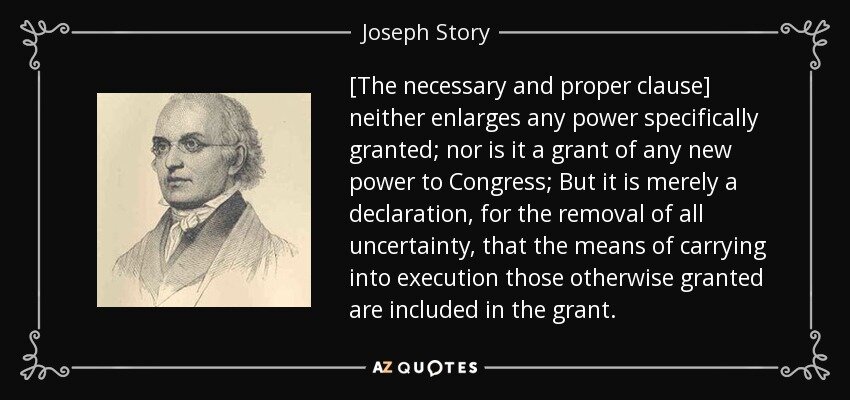McKay Coppins January/February 2021 Atlantic essay “The Most American Religion” is a very long read, but has some incisive things to say about Mormonism. Let me distill out the most interesting and novel threads in what he said. All the quotations in this post are from that essay. McKay is a Mormon himself, and so sometimes uses “we” to refer to Mormons.
One key point he makes about Mormonism is how eager it is for validation in the broader culture. When I was growing up in Mormonism, every Mormon who was a celebrity in the broader culture was precious to us as Mormons. We were inordinately proud of the Osmonds and Johny Miller (the golfer) and the Marriotts (the hotel magnates). Mormons were (as I was) and are a little pathetic in this way because as McKay reports a theater critic telling him: “your people have absolutely no cultural cachet.”
McKay points to the importance for Mormon history of the desire for cultural validation:
Mormons didn’t become avatars of a Norman Rockwellian ideal by accident. We taught ourselves to play the part over a centuries-long audition for full acceptance into American life. That we finally succeeded just as the country was on the brink of an identity crisis is one of the core ironies of modern Mormonism.
The Republican tilt of Mormonism has something to do with the long-lasting effects of a deal the Mormon Church made to get statehood for Utah toward the end of the 19th century. (See “How the Mormons Became Largely Republican.” But the traditional Americanism of Mormonism has to do with trying to get acceptance.
Mormons still longed for full initiation into American life. By the end of the 19th century, they had embarked in earnest on a quest for assimilation, defining themselves in opposition to their damaging caricatures. If America thought they were non-Christian heretics, they would commission an 11-foot statue of Jesus and place it in Temple Square. If America thought they were disloyal, they would flood the ranks of the military and intelligence agencies. (At one point, Brigham Young University was the third-largest source of Army officers in the country.) To shake the stench of polygamy—which the Church renounced in 1890—they became models of the large nuclear family.
Unfortunately, one of the ways the Mormon Church tried to assimilate was taking on at least the basic American racism—something it is at pains to live down now, under the constraint that admitting fully that its past racism was a mistake runs the risk of diminishing the authority of past Mormon leaders. (See “Flexible Dogmatism: The Mormon Position on Infallibility” and “Christian Kimball on the Fallibility of Mormon Leaders and on Gay Marriage.”) And even changing the direct institutional racism required a revelation from God (as subjectively experienced by Mormon Church leaders).
Nevertheless, because Mormon racism was just trying to fit in, on average it never went as deep as the rooted racism that Mormonism was trying to blend in with. As some evidence that racism and its ilk doesn’t run as deep in Mormonism as one might expect from its history of overt, official racist policy, Mormons on average are much less subject to the ugly anti-immigrant sentiments than would be expected from their political leanings and the cultural moment:
According to one survey, Latter-day Saints are more than twice as likely as white evangelicals to say they welcome increased immigration to the United States. When Donald Trump called for a ban on Muslim immigration, the Church, hearing an eerie historical echo, issued a blistering condemnation. Later, when Trump signed an executive order allowing cities and states to veto refugee resettlement, Utah was the first red state in the country to request more refugees.
Muhammed Shoayb Mehtar, who served as an imam in Utah for more than a decade, told me that when new people would arrive at his mosque—many of them refugees fleeing desperate circumstances—locals would show up, offering food, furniture, and jobs. In some states, Muslims worried about harassment and hate crimes. But in Utah, Mehtar said, “folks don’t have this toxic view of Oh, they are foreigners; they want to take over. They don’t have that mentality within them.”
I suspect that my own views on immigration were heavily informed by the 40 years I spent as a Mormon before I left Mormonism in 2000. (You can see my views on immigration in “It Isn't OK to Be Anti-Immigrant,” ‘The Hunger Games’ Is Hardly Our Future--It's Already Here and “Handling Immigration in a Way that Addresses Legitimate Concerns.”)
Mormonism has real strengths in helping people have a positive attitude toward those that are different. (Even those in other religions need to be understood and empathized with in order to have any hope of converting them. See this Twitter thread.) And unlike Progressive doctrine, among the gulfs Mormonism helps people bridge is differences in political views. McKay writes:
Mormonism has a reputation for conformity—starched white shirts and white picket fences and broods of well-behaved white children. But in much of the world, Mormon congregations are characterized by the way they force together motley groups of people from different backgrounds. Unlike most American Christians, Latter-day Saints don’t get to choose whom they go to church with. They’re assigned to congregations based on geographic boundaries that are often gerrymandered to promote socioeconomic diversity. And because the Church is run almost entirely by volunteers, and every member is given a job, they have to work together closely. Patrick Mason, a historian of religion, calls this “the sociological genius of Mormonism”—in a society of echo chambers and bowling alone, he says, the Church has doubled down on an old-fashioned communitarianism.
… at church, my most meaningful relationships were with people who resided well outside my bubble—middle-aged mail carriers and Caribbean immigrants; white-haired retirees and single parents navigating the city’s morass of social services.
Those who don’t know Mormonism well often assume that they have standard Republican views. But Mormonism has a strong belief in redistribution and people’s need for help from others, but redistribution and help from others by the Church (acting either as individuals or institutionally) rather than by the state:
Though Utah is very conservative, its residents generally don’t romanticize rugged individualism or Darwinian hyper-capitalism. It has the lowest income inequality in the country, and ranks near the top for upward mobility. The relative lack of racial diversity no doubt helps skew these metrics—structural racism doesn’t take the same toll in a state that is 78 percent white. But economists say the tightly networked faith communities have provided a crucial extra layer to the social safety net.
For Mormons, there is a distinct set of religious ideals that can win out over political partisanship. McKay has two passages about Mormonism and Trumpism. The facts alone are fascinating, even if you disagree with McKay’s interpretation:
In the past few years, Mormons have become a subject of fascination for their surprising resistance to Trumpism. Unlike most of the religious right, they were decidedly unenthusiastic about Donald Trump. From 2008 to 2016, the Republican vote share declined among Latter-day Saints more than any other religious group in the country. And though Trump won back some of those defectors in 2020, he continued to underperform. Joe Biden did better in Utah than any Democrat since 1964, and Mormon women likely played a role in turning Arizona blue.
Scholars have offered an array of theories to explain this phenomenon: that Mormon communities are models of connectedness and trust, that the Church’s unusual structure promotes consensus-building over culture war, that the faith’s early persecution has made its adherents less receptive to nativist appeals.
… conservative Mormons were among the GOP voters most resistant to Trump’s rise in 2016. He finished dead last in Utah’s Republican primary, and consistently underperformed in Mormon-heavy districts across the Mountain West. When the Access Hollywood tape leaked, the Church-owned Deseret News called on Trump to drop out. On Election Day, he received just over half of the Mormon vote, whereas other recent Republican nominees had gotten closer to 80 percent.
Trump did better in 2020, owing partly to the lack of a conservative third-party candidate like Evan McMullin. (Full postelection data weren’t available as of this writing.) But the Trump era has left many Mormons—once the most reliable Republican voters in the country—feeling politically homeless. They’ve begun to identify as moderate in growing numbers, and the polling analyst Nate Silver has predicted that Utah could soon become a swing state. In June, a survey found that just 22 percent of BYU students and recent alumni were planning to vote for Trump.
Robert P. Jones, the head of the Public Religion Research Institute, says this Mormon ambivalence is notable when compared with white evangelicals’ loyalty to Trump. “History and culture matter a lot,” Jones told me. “Partisanship today is such a strong gravitational pull. I think what we’re seeing with Mormons is that there’s something else pulling on them too.”
An extreme case of a Mormon Republican resisting Trumpism is my distant cousin Mitt Romney voting to convict Donald Trump. Here, some of what I see as the “Stoic” virtues of Mormonism came into play:
After Romney voted to remove Trump from office—standing alone among Republican senators—he told me his life in the Church had steeled him for this lonely political moment, in which neither the right nor the left is ever happy with him for long. “One of the advantages of growing up in my faith outside of Utah is that you are different in ways that are important to you,” he said. In high school, he was the only Mormon on campus; during his stint at Stanford, he would go to bars with his friends and drink soda. Small moments like those pile up over a lifetime, he told me, so that when a true test of conscience arrives, “you’re not in a position where you don’t know how to stand for something that’s hard.”
I have half-joked or quarter-joked often in my blog about “save-the-world” projects. (And I posted my Unitarian-Universalist sermon “So You Want to Save the World.”) I got this combination of grandiosity, desire to make a—and belief that it is possible to make a difference—partly from my Mormon background (and from my high-status within Mormonism as a male and a grandchild of the 1973-1985 head of the Mormon Church, Spencer W. Kimball).
In the political realm, the idea that Mormons can make a difference is encapsulated in a powerful Mormon legend McKay lays out:
There is a story about Joseph Smith that has circulated among Mormons for generations. In 1843, a year before his death, he was meeting with a group of Church elders in Nauvoo when he began to prophesy. The day would come, Smith predicted, when the United States would be on the brink of collapse—its Constitution “hanging by a thread”—only to be saved by a “white horse” from God’s true Church.
Historians and Church leaders have long dismissed the story as apocryphal … But the notion has lingered for a reason. It appeals to the Mormons’ faith in America—and to their conviction that they have a role to play in its preservation.
Interestingly, Mormon efforts to make a political difference are showing up in a certain level of resistance to Trumpism. (For example, “Mormon Women for Ethical Government” arose in reaction to the election that made Donald Trump president.
It should be obvious that I find a lot to admire in Mormonism. And just as obviously, I found many things to object to in Mormonism, otherwise I wouldn’t have left the Church of my ancestors. Many Mormons and many who oppose Mormonism assume Mormonism is a take-it-or-leave-it proposition. Not so. Like most complex objects, it is quite possible to learn from and emulate the good parts and reject the bad.











